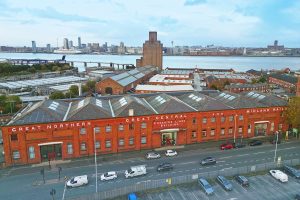New carbon reduction scheme begins

NEW rules that came into force this month will pitch some of North West’s largest organisations against each other in a drive to cut carbon dioxide (CO2) emissions.
For the first time, large, non-energy intensive organisations, which account for about 10% of UK CO2 emissions, will be legally bound to closely monitor and report their emissions from energy use in preparation for carbon trading.
It is estimated that 5,000 businesses with energy bills of roughly £500,000 per annum will be included in the scheme.
It will also give people and businesses the opportunity to compare organisations’ efforts to combat climate change for the first time.
The Government scheme – known as the Carbon Reduction Commitment Energy Efficiency Scheme – will include household names such as Sainsbury’s, Tesco, Marks & Spencer, John Lewis, Barclays, HSBC, Hilton and Marriott. It will also include manufacturers and construction companies.
These businesses will be ranked according to reductions in energy use and improvements in energy efficiency alongside public sector organisations such as NHS trusts, local authorities and government departments.
Analysis for the Environment Agency suggests that the scheme could reduce CO2 emissions by up to 11.6m tonnes per year by 2020 – the equivalent of taking four million cars off the road.
It is also expected to save organisations money through reduced energy bills – benefiting the economy by at least £1bn by 2020.
More than 20,000 organisations will have to register with the Environment Agency by the end of September this year. Around 5,000 of these organisations – those that used at least 6,000 Megawatt hours (MWh) of half-hourly metered electricity in 2008 – will have to report their emissions and, from 2011, buy allowances for every tonne of CO2 they emit.
During the introductory phase in 2011 and 2012, allowances will be sold at a fixed price of £12 per tonne of CO2.
All the money raised from allowance sales will be recycled back to participants according to their energy performance.
Taking action early is key say experts from business advisory firm PricewaterhouseCoopers.
Steven White, director and sustainability leader in the North West at the firm said: “Registration is the easy part of the scheme. 2011 is when the impact on cash flow will really be felt.
“Businesses need to get on top of the long term energy, cash flow and reporting requirements. Underestimating the impact will hit companies’ bottom line at a time when they can least afford it.”







